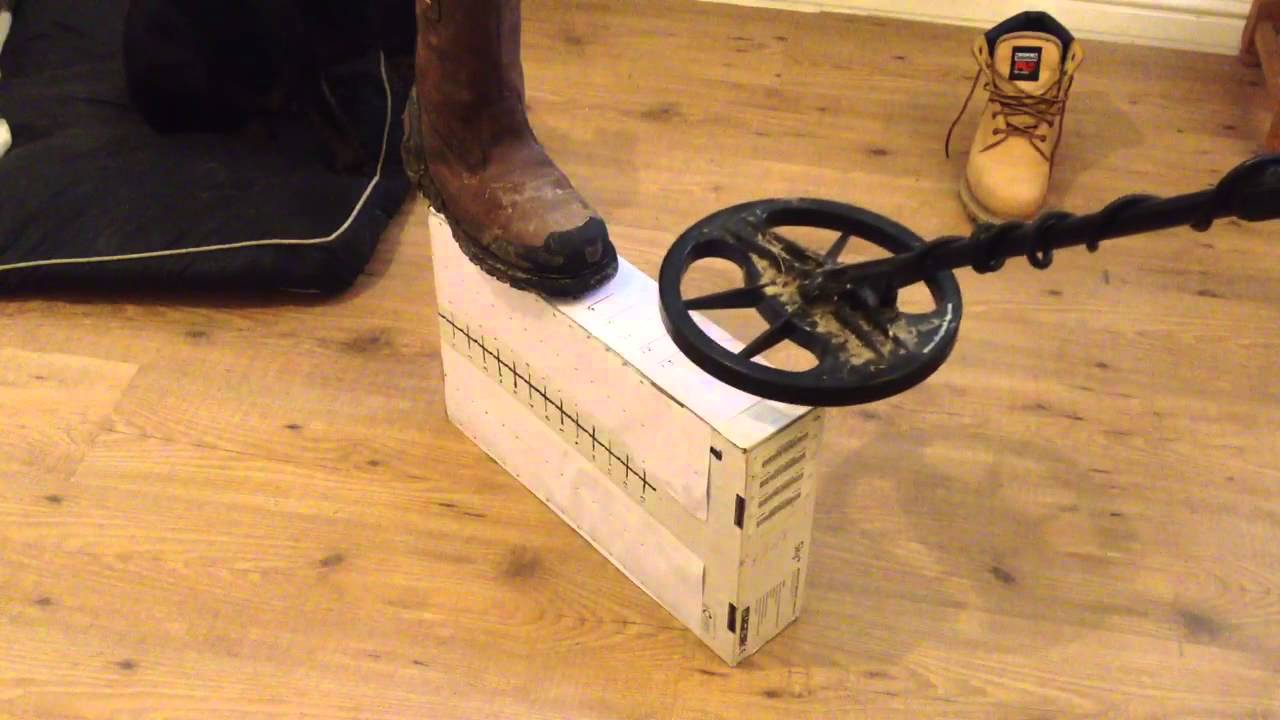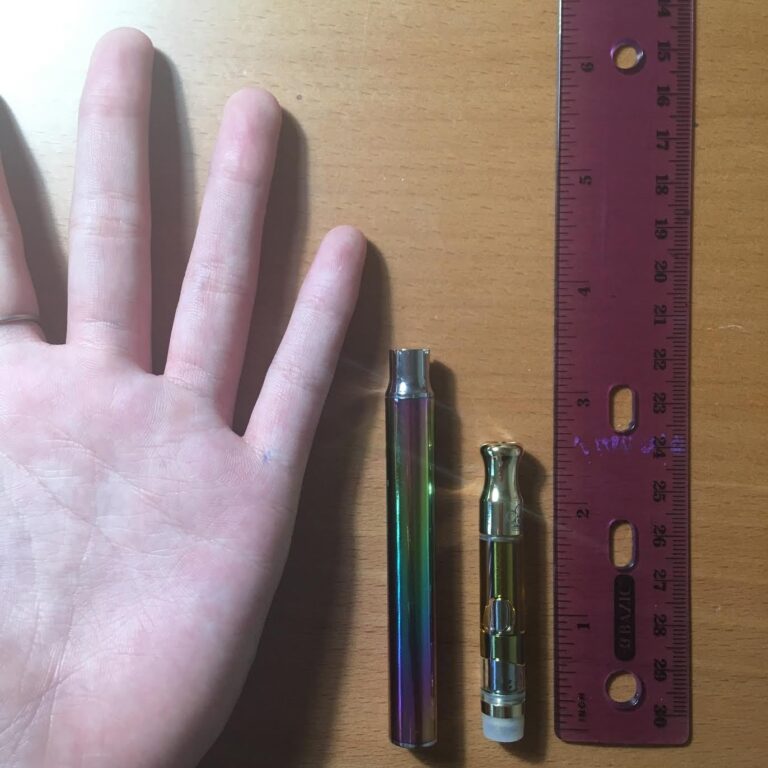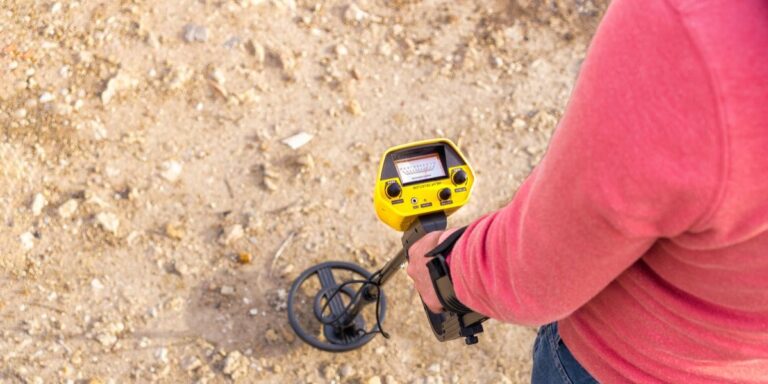Do Steel Toe Boots Set off Metal Detectors
Wearing steel-toe boots does not set off metal detectors. The steel in the boots is not ferrous, so it will not trigger a metal detector. However, if you have other metal on your ferrous body, such as a belt buckle or keys, that metal will set off the detector.
If you’ve ever wondered whether steel-toe boots set off metal detectors, the answer is yes! Steel-toe boots are made with steel reinforcement in the toe area, and this metal can trigger a metal detector. However, a few things to remember if you’re wearing steel-toe boots through a metal detector.
First, most security checkpoints have an adjustable sensitivity setting on the metal detector, so the security personnel may need to adjust the sensitivity if your boots set it off. Second, you can get through if you take your boots off and walk through the detector barefoot. Finally, if all else fails, ask for a pat-down instead of going through the metal detector.
We hope you’re getting the answer already. But do you know many more things are available because the metal detector can detect steel toe boots? You must read more about Do Steel Toe Boots Set off Metal Detectors to know that.
Do Steel Toe Boots Set off Metal Detectors
Can You Go Through Airport Security With Steel-Toe Boots?
Assuming you are referring to TSA security in the United States, the answer is yes; you can go through airport security with steel-toe boots. However, there are a few things to keep in mind. First, your boots will need to go through the X-ray machine.
So be sure to remove them before putting your carry-on items on the conveyor belt. Second, because steel-toe boots often have metal in them, they may set off the alarm when you walk through the metal detector. If this happens, you will likely be selected for additional screening, including a pat-down and having your shoes swabbed for explosives.
So if you’re wearing steel-toe boots and traveling through TSA security, be aware that you may need additional screening. But as long as you’re prepared for it, there shouldn’t be any problems.
Why do my boots set off metal detectors?
There are a few reasons your boots might set off a metal detector. First, if you have metal shanks in your boots, these can trigger the detector. Second, the metal rivets that hold your boot together can also cause the alarm to go off.
And finally, if you have steel toes in your boots, this can also be the culprit. So if you’re wondering why your boots are setting off metal detectors, it’s likely one of these reasons.
Do metal detectors detect metal in shoes?
While metal detectors are designed to detect metal, they may not pick up on smaller pieces of metal hidden in shoes. This is because the metal detector must directly contact the metal to register a hit. If the metal is too small or buried beneath other materials (like fabric or leather), then the detector may not be able to sense it.
There are ways to get around this, however. For example, you can remove your shoes and put them through the security scanner separately. Or, you can go through security barefoot (if the rules allow).
If you’re worried about setting off a metal detector with your shoes, it’s best to take them off before going through security.
Will composite-toe boots set off a metal detector?
There are a few different composite-toe boots, each made with different materials. Some composite-toe boots have steel toes, while others have aluminum or other metals in the toes. While most composite-toe boots will not set off a metal detector, some may be if the metal content in the toe is high enough.
If you are concerned about setting off a metal detector, it is best to check with the manufacturer of your boot to see what materials are used in the toe.
What is the maximum weight that a steel toe boot can withstand?
When working in a hazardous environment, having the proper footwear to protect your feet is essential. Steel-toe boots are designed to withstand heavy weights and impact, making them ideal for construction workers, factory workers, and anyone exposed to potential danger. But how much weight can a steel-toe boot withstand?
The answer depends on the specific boot. Some steel-toe boots are designed to support up to 1,500 pounds of weight, while others can handle even more. It is always best to check the specifications of your particular boot before testing its limits.
In general, however, you can rest assured that your steel-toe boot will provide ample protection against most hazards you may encounter at work. Withstand heavy weights and impact today by investing in a quality pair of steel-toe boots!
Composite-toe boots
There are many types of safety-toe footwear on the market today. Composite-toe boots are one type. Composite-toe boots have a variety of benefits over traditional steel-toe boots and are becoming increasingly popular in many industries.
Here are a few reasons you might want to consider composite-toe boots for your next pair of safety shoes:
- Composite toes are lighter than steel toes. This can make a big difference when your feet are tired and sore at the end of a long day.
- Composite toes provide better protection from impact and compression than steel toes. They’re also non-conductive so they won’t conduct electricity like steel can.
- Composite toes are often more comfortable than steel ones because they don’t add as much weight to the boot and conform more to the shape of your foot.
- You don’t have to worry about rust or corrosion with composite-toe boots like steel-toe boots—another reason they require less maintenance over time.
Is Composite Toe Equivalent to Steel Toe?
There are a few different options regarding the type of toe protection available in working boots. Two of the most popular choices are composite-toe and steel-toe boots. So, what’s the difference between the two?
Composite-toe boots are made with various materials, including plastic, carbon fiber, or Kevlar. They’re designed to be lightweight and provide protection from impact and compression. Composite-toe boots are also non-conductive, so they’re a good choice for workers who are around electricity.
Steel-toe boots are made with, you guessed it, steel toes. They’re heavier than composite-toe boots but provide more protection from impact and compression. Steel-toe boots are also conductive, so they’re not the best choice for workers who are around electricity.
Conclusion
Wearing steel-toe boots may set off metal detectors, depending on the type of detector and the settings. If you are going through a security checkpoint that uses a walk-through metal detector, your boots should not set off the alarm. However, your boots may set off the alarm if you are going through a security checkpoint that uses a hand-held metal detector.







